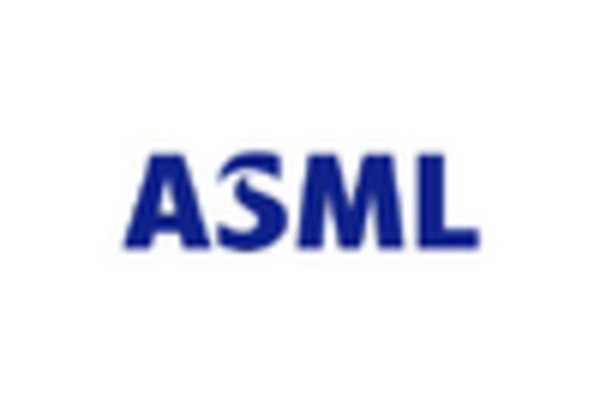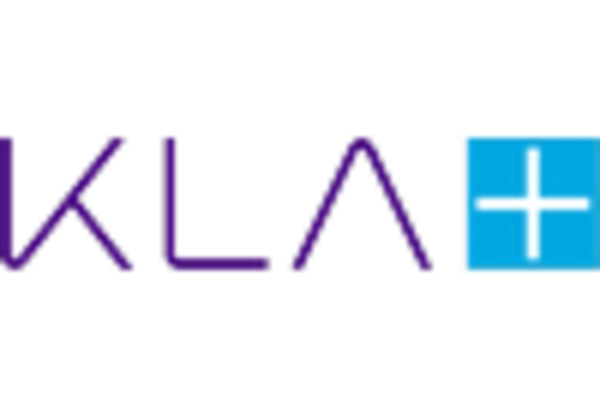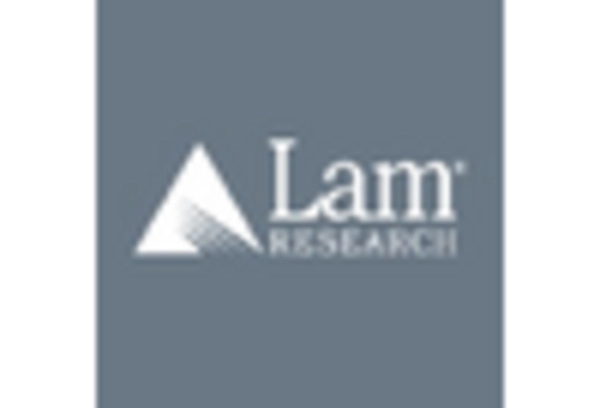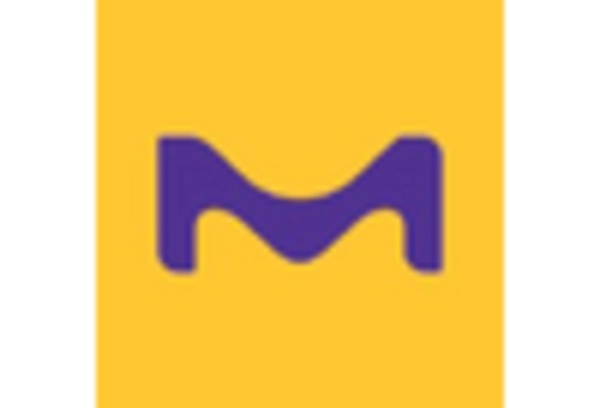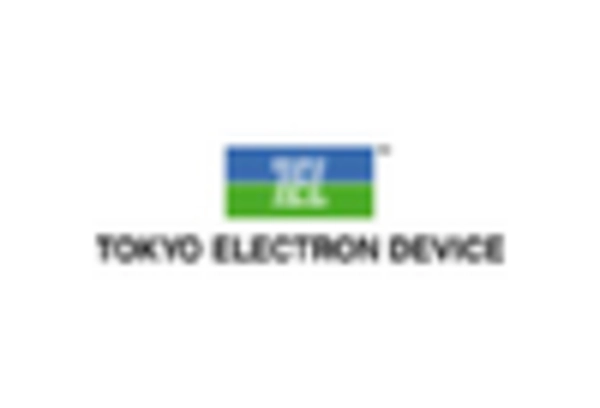The semiconductor materials market in Germany is characterized by a dynamic competitive landscape, driven by rapid technological advancements and increasing demand for high-performance electronic devices. Key players such as Applied Materials (US), ASML (NL), and Merck Group (DE) are strategically positioned to leverage innovation and regional expansion. Applied Materials (US) focuses on enhancing its product portfolio through continuous research and development, while ASML (NL) emphasizes its leadership in lithography technology, which is crucial for semiconductor manufacturing. Merck Group (DE) is actively pursuing partnerships to strengthen its position in specialty chemicals, thereby shaping the competitive environment through collaborative innovation.The market structure appears moderately fragmented, with several players vying for market share. Key business tactics include localizing manufacturing to reduce lead times and optimize supply chains. This approach not only enhances operational efficiency but also allows companies to respond swiftly to market demands. The collective influence of major players fosters a competitive atmosphere where innovation and strategic partnerships are paramount.
In October KLA Corporation (US) announced a significant investment in a new R&D facility in Germany, aimed at advancing its semiconductor inspection technologies. This move is likely to bolster KLA's capabilities in providing cutting-edge solutions, thereby enhancing its competitive edge in the market. The establishment of this facility underscores the company's commitment to innovation and its strategic focus on the European market.
In September BASF (DE) unveiled a new line of advanced materials designed for semiconductor applications, which are expected to improve performance and sustainability. This strategic initiative reflects BASF's dedication to addressing the growing demand for environmentally friendly materials in semiconductor manufacturing. By prioritizing sustainability, BASF positions itself favorably in a market increasingly influenced by environmental considerations.
In August Tokyo Electron (JP) expanded its collaboration with local universities in Germany to foster innovation in semiconductor technology. This partnership aims to enhance research capabilities and drive the development of next-generation materials. Such collaborations are indicative of a broader trend where companies seek to integrate academic research with industrial applications, thereby accelerating technological advancements.
As of November current competitive trends in the semiconductor materials market are heavily influenced by digitalization, sustainability, and AI integration. Strategic alliances are increasingly shaping the landscape, as companies recognize the value of collaborative innovation. The shift from price-based competition to a focus on technological differentiation and supply chain reliability is evident. Moving forward, companies that prioritize innovation and sustainable practices are likely to gain a competitive advantage, positioning themselves favorably in an evolving market.


